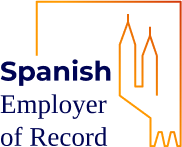21 March 2025
Common payroll mistakes employers make in Spain (and how to avoid them)
Payroll compliance is a cornerstone of running a successful business in Spain. Employers who fail to adhere to the country’s detailed payroll regulations can face steep penalties, audits, and damaged employee relations.
Fortunately, understanding the most common pitfalls can help businesses put measures in place to avoid them, ensuring smooth payroll operations and regulatory compliance. This guide will highlight the most frequent payroll errors, their consequences, and actionable solutions to prevent costly mistakes.
Late or incorrect payroll tax filings
Employers in Spain are required to file payroll taxes within strict deadlines set by the tax authorities. Failing to do so can lead to penalties, interest charges, and potentially even audits. Incorrect submissions—such as misreporting taxable income or overlooking social security contributions—can also trigger financial repercussions and strain employee relations.
To prevent these issues, companies must establish a well-organized payroll schedule, utilise up-to-date payroll software, and ensure staff is trained on current filing requirements. In many cases, working with payroll experts or external payroll providers can guarantee an additional layer of accuracy and compliance.
Misclassification of employees vs. independent contractors
One of the most serious payroll errors employers can make is misclassifying employees as independent contractors (autónomos) or vice versa. Spanish labor law sets clear distinctions between employees—who receive salaries, benefits, and protections under labor regulations—and independent contractors, who are responsible for their own taxes and social security contributions.
Misclassification can lead to fines, legal disputes, and back payment obligations for unpaid taxes and benefits. To avoid these issues, businesses must carefully review contracts, confirm that the working relationship aligns with Spanish employment definitions, and, if necessary, consult legal or HR specialists who understand local labor laws.
Errors in Social Security contributions
Social security contributions are mandatory in Spain, with both employers and employees making payments to fund benefits like healthcare, pensions, and unemployment insurance. Common errors include miscalculating the amount owed, failing to account for all employee benefits in the contribution base, or missing the correct filing periods.
Such mistakes can result in underpayments that trigger fines, or overpayments that can be difficult to recover. Employers should implement robust payroll systems that accurately calculate contributions and rely on professional payroll providers who have expertise in Spanish social security requirements.
Incorrect income tax (IRPF) deductions
Personal income tax (IRPF) is a major component of payroll in Spain, and getting it wrong can create significant financial and administrative headaches. Miscalculating tax bands, applying incorrect rates, or failing to update rates when an employee’s circumstances change can lead to under-deducted amounts that must be repaid later or over-deducted amounts that upset employees.
To ensure accurate tax deductions, employers should use reliable tax tables, regularly update their payroll software, and ensure HR and finance teams understand how to apply Spanish tax rules.
Non-compliance with employee benefits and paid leave
Spanish labor laws provide extensive benefits for employees, including mandatory paid leave, sick leave, maternity and paternity benefits, and severance pay in cases of termination.
Missteps in calculating these entitlements—such as providing too few days of holiday pay, incorrectly calculating sick pay, or failing to meet severance obligations—can lead to disputes, legal actions, and financial penalties.
Staying compliant requires employers to stay informed of current labor laws, use modern payroll systems that track employee leave balances, and work closely with HR professionals who are well-versed in Spanish employment regulations.
Payroll software errors and manual processing risks
Relying on outdated payroll software or performing calculations manually increases the likelihood of errors. Manual processes can lead to costly mistakes and time-consuming corrections, from miscalculating taxes to missing critical filing deadlines.
Switching to automated, regularly updated payroll software ensures accurate calculations, reduces the administrative burden, and helps maintain compliance with the latest regulations. Employers should also consider periodic audits of their payroll processes and training sessions for payroll staff to ensure they understand the systems in place.
How can an Employer of Record help ensure correct payroll practices in Spain?
A Spanish Employer of Record (EOR) offers businesses a seamless solution to manage payroll compliance in Spain without the need for a local entity. By acting as the official employer on paper, the EOR handles all aspects of payroll processing, from tax withholding and social security contributions to mandatory employee benefits.
This arrangement not only eliminates the risk of misclassification, tax errors, and late filings, but also simplifies payroll operations, allowing businesses to focus on their core activities. For international companies or startups entering the Spanish market, partnering with an EOR can be the most efficient and compliant way to avoid costly payroll mistakes.
Benefits of using an EOR:
- Ensures proper classification of employees and contractors under Spanish law.
- Handles payroll taxes, social security contributions, and reporting with precision.
- Minimises the risk of penalties, fines, or audits due to errors.
- Provides local expertise and compliance with complex Spanish regulations.
When to consider an EOR:
- Expanding into Spain without establishing a legal entity.
- Hiring remote employees or independent contractors in Spain.
- Facing challenges with local payroll compliance and frequent errors.
- Seeking a cost-effective way to manage payroll without internal HR infrastructure.
For instance, a mid-sized tech company based in Germany decided to open a satellite office in Barcelona. With their first hires in Spain, they quickly realized that payroll compliance was far more complex than anticipated. They struggled with late filings, incorrect income tax deductions, and confusion over social security contributions. This not only resulted in administrative headaches but also exposed them to potential fines and employee dissatisfaction.
To address these challenges, the company partnered with an Employer of Record. The EOR handled all payroll processing, ensured that the correct tax rates and social security contributions were applied, and provided detailed, accurate reporting to Spanish authorities. By outsourcing its payroll compliance, the business avoided costly mistakes, protected its reputation, and provided a seamless payroll experience for its Spanish team.
Simplify your payroll operations in Spain
Accurate payroll management is essential for any company operating in Spain. Recognising common payroll pitfalls—such as late filings, misclassification, and social security errors—helps employers implement preventative measures and avoid costly mistakes. Businesses can safeguard their payroll processes by utilising automated payroll systems, keeping current with labor regulations, and consulting with experts. Companies should consider partnering with an Employer of Record for a comprehensive, compliant solution. Contact us today to find out how we can help ensure smooth payroll operations, reduce administrative burdens, and keep your business on track.



